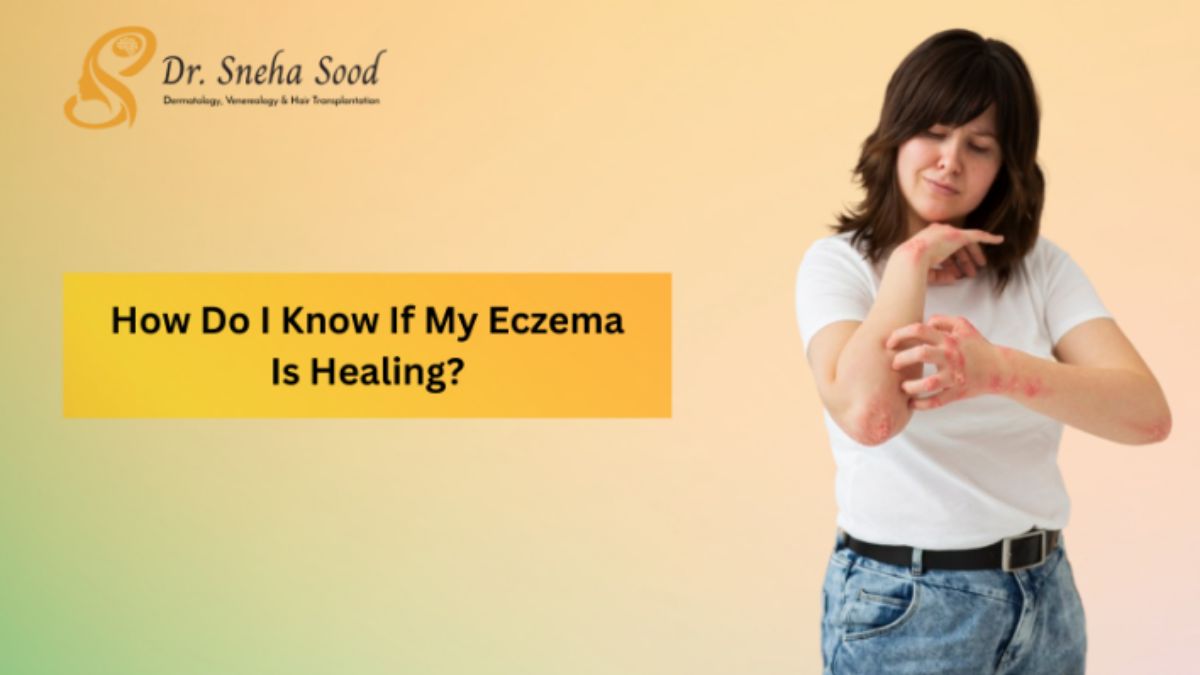Eczema, also known as atopic dermatitis, is a chronic skin condition that can cause discomfort and frustration. If you’re managing eczema, it’s essential to recognize the signs that your skin is healing. Understanding these indicators can help you maintain a positive outlook and continue with effective treatment strategies.
Introduction
Eczema often presents as red, inflamed, and itchy patches on the skin. While flare-ups are common, it’s important to know when your skin is healing. Recognizing the signs of recovery can guide your skincare routine and provide reassurance during the healing process.
1. Reduced Redness and Inflammation
One of the first signs that your eczema is healing is a noticeable decrease in redness and inflammation. As the skin begins to repair itself, the affected areas will appear less swollen and irritated.
2. Decreased Itching
While some itching may persist, a significant reduction in itchiness is a positive sign of healing. Intense itching is characteristic of the acute stage of eczema, and its decrease suggests that the inflammation is subsiding.
3. Smoother Skin Texture
As the skin heals, you may notice that the rough, dry patches characteristic of eczema begin to soften. This improvement in skin texture indicates that the skin’s barrier is repairing and becoming more resilient.
4. Formation of Scabs or Crusts
In the healing phase, you might observe the formation of scabs or crusts on the affected areas. This is a natural part of the recovery process as the skin works to close open lesions and protect itself from infection.
5. Less Oozing or Crusting
During the acute stage, eczema can cause oozing or crusting of the skin. As healing progresses, these symptoms diminish, and the skin becomes drier and less prone to weeping.
6. Fewer Flare-Ups
If you notice that flare-ups are becoming less frequent and less severe, it’s a sign that your eczema is healing. Consistent management and treatment can lead to longer periods of remission between flare-ups.
7. Improved Overall Skin Health
Healing eczema often leads to improved overall skin health. This includes better moisture retention, reduced sensitivity, and a more even skin tone. Maintaining a consistent skincare routine can support these improvements.
Conclusion
Recognizing the signs that your eczema is healing can provide encouragement and help you adjust your skincare routine accordingly. Remember, healing is a gradual process, and consistency is key. If you have concerns about your eczema or its healing progress, consult with a healthcare professional for personalized advice.
FAQs
Q1: How long does it take for eczema to heal?
A1: The healing time for eczema varies depending on the severity and individual factors. With proper treatment and care, many individuals notice improvement within a few weeks.
Q2: Is itching a sign of healing?
A2: While some itching can occur during the healing process, persistent or intense itching may indicate ongoing inflammation. It’s essential to monitor your symptoms and consult a healthcare provider if necessary.
Q3: Can eczema heal without treatment?
A3: While some mild cases of eczema may improve without treatment, most individuals benefit from a consistent skincare routine and, if necessary, medical interventions to manage symptoms and promote healing.
Q4: Are there natural remedies to support eczema healing?
A4: Some individuals find relief from natural remedies such as oatmeal baths, coconut oil, and aloe vera. However, it’s crucial to consult with a healthcare provider before trying new treatments.
Q5: Can stress affect eczema healing?
A5: Yes, stress can exacerbate eczema symptoms and potentially hinder the healing process. Managing stress through relaxation techniques and a healthy lifestyle can support skin recovery.
Q6: When should I see a doctor about my eczema?
A6: If your eczema symptoms worsen, become infected, or do not improve with over-the-counter treatments, it’s advisable to consult a healthcare professional for further evaluation and management.
